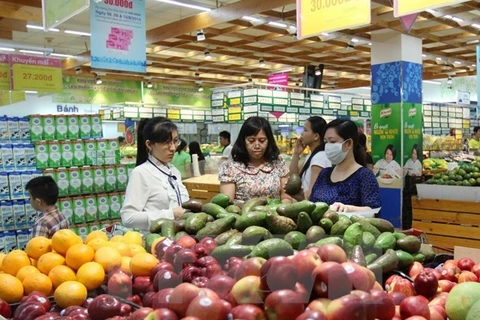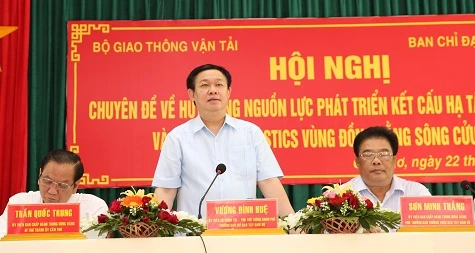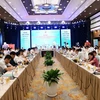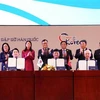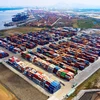Hanoi (VNA) - The industry and trade ministry is drafting an action plan for lowering logistics costs to 18 percent of the country’s gross domestic product (GDP) by 2020.
The costs for logistics currently are about 20 to 25 percent of the GDP, compared with the average rates of seven to 10 percent in developed countries.
Reducing logistics costs will help prevent wastage of resources and enhance the competitiveness of the Vietnamese economy amid the rapid international integration, the ministry said.
Under the Prime Minister’s draft action plan for enhancing competitiveness and developing logistics services, which is being discussed for more ideas, the ministry said logistics will be developed as a key service industry that can meet domestic demand and extend its reach to the regional and global markets.
The logistics services industry will contribute five percent of the GDP and have a growth rate of 15 to 20 percent per year by 2020, according to the draft.
Improving logistics infrastructure and the capacity of logistics firms is essential as local logistics firms are struggling to compete with foreign rivals.
Multinational logistics firms hold a significant market share in providing logistics services in Vietnam.
So Xuan Quang, president of the Vietnam Logistics Association, said at a recent conference that foreign marine transport firms accounted for just three to four percent of the number of logistics firms operating in Vietnam, but handled more than 80 percent of the country’s import and export volumes.
Foreign firms are dominant in routes leading to the American and European markets.
Meanwhile, more than 70 percent of the existing 1,300 domestic firms are of small and medium size, with average capital of about 7 billion VND (320,000 USD), making it hard for them to compete with multinational companies. They mainly provide services in the local or nearby markets.
However, Quang said the logistics services industry of Vietnam has significant room for growth, especially with the formation of the ASEAN Economic Community as well as participation in free trade agreements, which would promote trade and boost demand for logistics services.
In order to promote the development of the logistics industry, the ministry proposed in the draft that the legal framework should be improved, coupled with enhanced infrastructure connectivity to transform Vietnam into a logistics hub of the region.
In addition, firms must improve their capacity and competitiveness, while paying attention to developing human resources for the logistics sector and applying technologies in operation.-VNA


